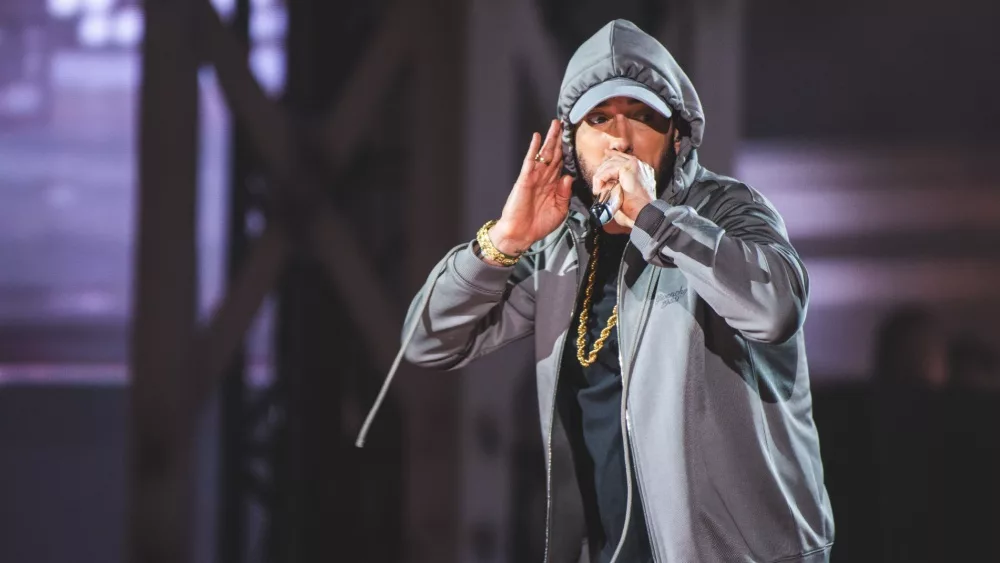On the historical significance of the 2024 election
Schiller: If elected, it is highly likely that Trump will govern in a more authoritarian fashion than any president in modern times, and he will try to disregard the rule of law, especially given that the current Supreme Court has given presidents immunity for actions taken while president. We will have to see how Americans react to the changes that would come in every corner of our democracy.
 Tobin-Tyler: This election could not be more important for the future of women’s rights. The differences in the visions for the future of the country, and interpretation of the past, of the two campaigns are stark. The ideology represented by the Trump-Vance campaign envisions a return to a time when women’s roles were more circumscribed and they were expected to sacrifice their freedoms and economic independence to fulfill their role as mothers. Parts of the religious right are attacking not only access to abortion, but also access to contraception as a way to reign in what some see as too much sexual freedom for women. This vision has been reinforced by the conservative majority of the Supreme Court, which insists that the Constitution should be interpreted through the lens of “history and tradition” and the original public meaning at the time of the country’s founding, a time when women essentially had no rights. In recent cases, it has also signaled its willingness to privilege religious rights over the rights of women and gender minorities.
Tobin-Tyler: This election could not be more important for the future of women’s rights. The differences in the visions for the future of the country, and interpretation of the past, of the two campaigns are stark. The ideology represented by the Trump-Vance campaign envisions a return to a time when women’s roles were more circumscribed and they were expected to sacrifice their freedoms and economic independence to fulfill their role as mothers. Parts of the religious right are attacking not only access to abortion, but also access to contraception as a way to reign in what some see as too much sexual freedom for women. This vision has been reinforced by the conservative majority of the Supreme Court, which insists that the Constitution should be interpreted through the lens of “history and tradition” and the original public meaning at the time of the country’s founding, a time when women essentially had no rights. In recent cases, it has also signaled its willingness to privilege religious rights over the rights of women and gender minorities.
Reflective of this “take the country back” vision is an unwillingness to acknowledge the very real challenges faced by women in 2024: No federally mandated paid family leave, unaffordable and often low-quality childcare, a stubborn pay gap, and a growing maternal health crisis, exacerbated by inaccessible reproductive health care for many women, especially low-income women and women of color.
The Harris campaign represents a completely different vision of women’s roles and rights. If she wins, as the first woman president she will exemplify what it means for women to have equal access to power. Her record as vice president and her choice of Tim Walz, who as governor of Minnesota successfully passed paid leave and childcare legislation, also demonstrates her vision of what policies she believes can help to provide an even playing field for women.
On how the economy will affect voters’ decisions
 Blyth: If we are talking about the broad mass of voters whose votes will absolutely not determine the election — say Democratic voters in Massachusetts or Republican voters in Montana — then the cost of living, especially the cost of housing, is a key issue. Unfortunately, there is very little either candidate can do about these factors in the short to medium run (build many more houses, break up concentrated markets) and one of them seems to have little interest in either solution, focusing instead on China and immigration as key themes. In terms of the less than 1% of the population that will decide the election? That’s anyone’s guess. Housing or immigration? Take your pick. And if the Middle East turmoil worsens and that affects gas prices, that adds more uncertainty into the mix.
Blyth: If we are talking about the broad mass of voters whose votes will absolutely not determine the election — say Democratic voters in Massachusetts or Republican voters in Montana — then the cost of living, especially the cost of housing, is a key issue. Unfortunately, there is very little either candidate can do about these factors in the short to medium run (build many more houses, break up concentrated markets) and one of them seems to have little interest in either solution, focusing instead on China and immigration as key themes. In terms of the less than 1% of the population that will decide the election? That’s anyone’s guess. Housing or immigration? Take your pick. And if the Middle East turmoil worsens and that affects gas prices, that adds more uncertainty into the mix.
On the role of race
 Tate: Trump has made race an issue in this campaign. He accused Harris of only recently claiming to be Black. He has falsely accused Haitian immigrants of eating family pets. He said he would change Fort Liberty’s name back to its former Confederate name, Fort Bragg. He has pledged to end DEI programs in the military and in federal offices. He has also attacked Harris’ gender, calling her dumb. Harris has reacted by avoiding any discussion of her race and gender. She generally has not commented on the historic nature of this election, and the fact that she could become the nation’s first Black South Asian female president. When asked directly about Trump’s comment about her racial identity, she refused to answer, saying “next question.”
Tate: Trump has made race an issue in this campaign. He accused Harris of only recently claiming to be Black. He has falsely accused Haitian immigrants of eating family pets. He said he would change Fort Liberty’s name back to its former Confederate name, Fort Bragg. He has pledged to end DEI programs in the military and in federal offices. He has also attacked Harris’ gender, calling her dumb. Harris has reacted by avoiding any discussion of her race and gender. She generally has not commented on the historic nature of this election, and the fact that she could become the nation’s first Black South Asian female president. When asked directly about Trump’s comment about her racial identity, she refused to answer, saying “next question.”
By injecting race into the campaign, Trump is appealing to his base of racially conservative white voters. Political scientists have found that whites who believe that Blacks don’t try hard enough and want special favors (about 40% of the white population) greatly preferred Trump over Clinton in 2016, and that whites who believe the same things about Latinos (i.e., they don’t work hard) also preferred Trump. Trump has campaigned hard on stressing that Latino immigrants bring crime and are violent. Some Blacks and Latinos also believe that members of their community don’t work hard. These voters will strongly back Trump. If Trump wins, it will be because of his exploitation of America’s racial divisions.
 Zarate: I expect that race will play a significant role in voter behavior and affect the outcome of this election. Research has found that white racial identity and white racial animus are powerful predictors of support for Trump. Much of the Trump coalition is predicated on stoking white racial animus, and this hasn’t changed during his third campaign for president. If anything, with a woman of color as his opponent, now this strategy becomes even stronger.
Zarate: I expect that race will play a significant role in voter behavior and affect the outcome of this election. Research has found that white racial identity and white racial animus are powerful predictors of support for Trump. Much of the Trump coalition is predicated on stoking white racial animus, and this hasn’t changed during his third campaign for president. If anything, with a woman of color as his opponent, now this strategy becomes even stronger.
Although Harris’ status as a woman of color risks hurting her electoral chances among racial conservatives, there is reason to believe it will help her significantly among Democrats. Prior to Harris becoming the Democratic nominee, there was a lack of enthusiasm surrounding the election. This is no longer the case as evidenced by the Harris team’s fundraising numbers. Although there are likely several factors contributing to this, we have every reason to believe that Harris being a Black woman is part of it. This will be important come time to count the votes. The 2020 election underscored the importance of African American voters to Democrats, especially when thinking about the surprising presidential and senatorial victories in traditionally Republican Georgia.
On Black voter polling
 Tate: Harris has won back most of the Black vote that had eroded under Biden’s candidacy. Still, there are reportedly more Blacks supporting Trump in 2024 than in 2020. I am not sure Trump in the end will get a bump in Black support. I think Black dissatisfaction is there with both Harris and Trump. Although Harris replaced Biden, the choice in 2024 seems identical to the one in 2020 to dissatisfied Black voters. I think the turnout among Blacks might be low. The Democratic Party has to work harder on securing the support of young Black males.
Tate: Harris has won back most of the Black vote that had eroded under Biden’s candidacy. Still, there are reportedly more Blacks supporting Trump in 2024 than in 2020. I am not sure Trump in the end will get a bump in Black support. I think Black dissatisfaction is there with both Harris and Trump. Although Harris replaced Biden, the choice in 2024 seems identical to the one in 2020 to dissatisfied Black voters. I think the turnout among Blacks might be low. The Democratic Party has to work harder on securing the support of young Black males.




















